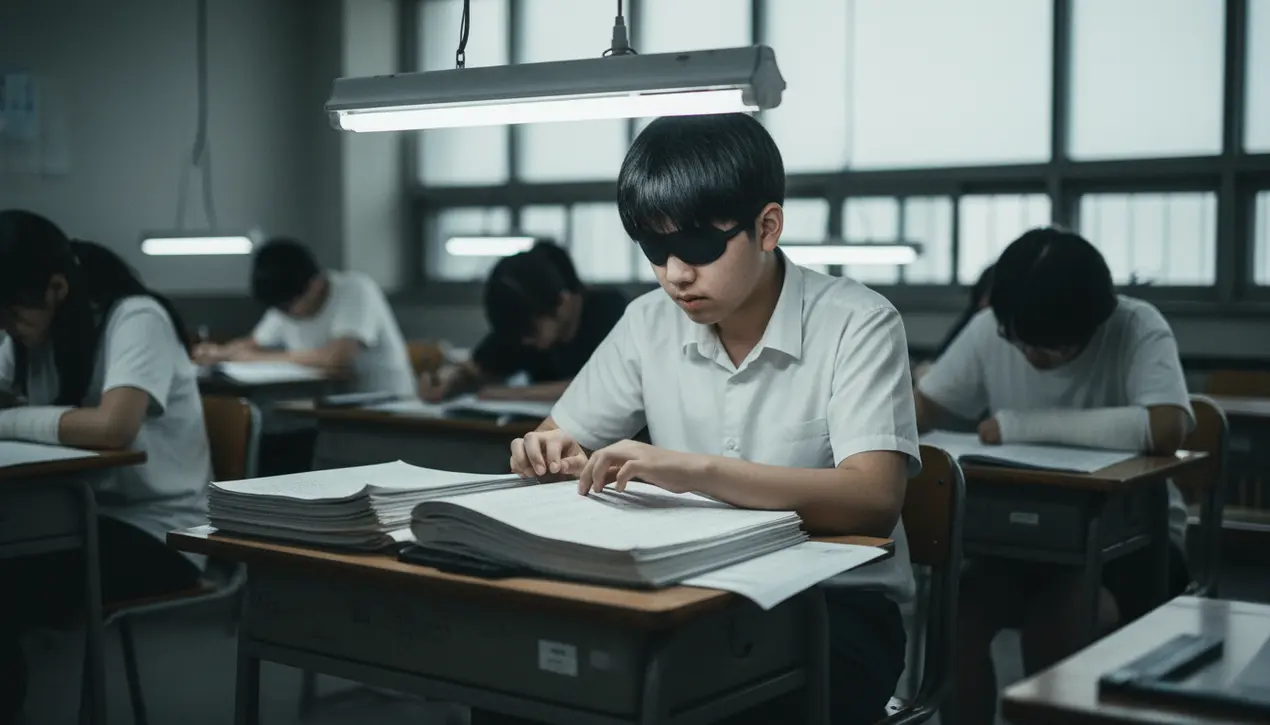
OthereducationExams and Testing
Blind Students Face Unique Challenges in South Korea's Grueling Exam
EM
Emma Wilson
2 hours ago7 min read1 comments
In the high-stakes crucible of South Korea's national college entrance exam, the Suneung, where a single score can dictate the trajectory of a young person's life, a profound and often overlooked battle is being waged by blind and visually impaired students. This eight-hour academic marathon, notorious for its intensity and the societal pressure it exerts, presents a set of unique, systemic hurdles that go far beyond the grueling curriculum.While all students grapple with the pressure-cooker environment, blind test-takers confront a logistical labyrinth from the moment they register. The provision of braille or large-print test papers, while mandated, is often fraught with delays and inconsistencies, forcing students to adapt to materials that may not arrive in time for crucial final preparations.The exam itself, a relentless sprint through multiple-choice questions, transforms into a test of endurance when accessible formats are used; reading braille is a slower, more tactile process, and the use of screen readers or text-to-speech software requires isolated testing rooms to avoid disturbing others, which can itself feel isolating and add a layer of psychological strain. Furthermore, the graphical and diagram-heavy sections, particularly in mathematics and sciences, are frequently rendered incompletely or inaccurately in accessible formats, instantly placing these students at a disadvantage.This isn't merely an academic inconvenience; it's a civil rights issue playing out in silent examination halls. Advocacy groups have long sounded the alarm, pointing to a lack of standardized protocols and adequate training for proctors, creating a postcode lottery of accessibility.The consequence is a system that, despite its claims of meritocracy, inadvertently reinforces inequality, potentially shutting bright, capable students out of the nation's top universities simply because the playing field was never leveled. The emotional toll is immense, compounding the already sky-high anxiety with the demoralizing fear that one's future could be compromised not by a lack of knowledge, but by a lack of foresight and commitment to genuine inclusion.This struggle echoes global conversations about educational equity, from the fight for accommodations in American standardized tests to similar debates in Japan's own entrance exams, highlighting a universal challenge. For South Korea, a nation that predicates so much of its modern identity on educational achievement, resolving this isn't just a matter of policy adjustment; it is a fundamental test of its commitment to building a society where opportunity is not determined by physical ability. The real question the system must answer is whether it has the vision to see its own blind spots and the courage to correct them.
#South Korea
#college entrance exam
#blind students
#accessibility
#education equity
#featured
Stay Informed. Act Smarter.
Get weekly highlights, major headlines, and expert insights — then put your knowledge to work in our live prediction markets.
Related News
Comments
Loading comments...
© 2025 Outpoll Service LTD. All rights reserved.